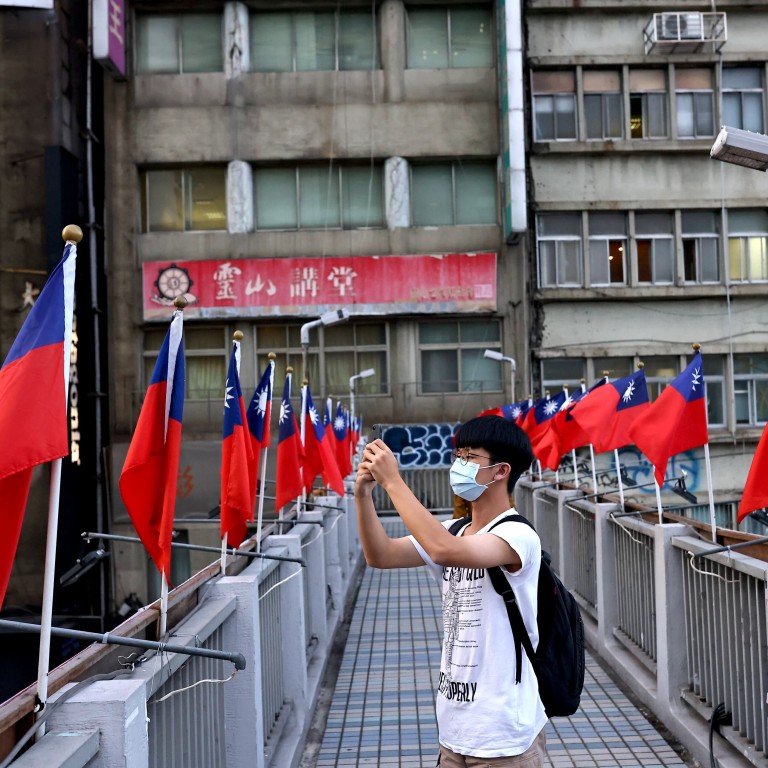
Taiwan prepares to celebrate the Republic of China’s foundation – but does that mean anything to young islanders?
- The ‘Double Tenth’ holiday marks the start of the republican era, but the current government is keen to distance Taiwan from mainland China
- Increasing numbers of young islanders see themselves as Taiwanese rather than Chinese and some say the history has nothing to do with them
They said that most Taiwanese are now accustomed to the mindset that “Taiwan is Taiwan and China is China”, and as a result fewer people make a connection between Taiwan and the ROC and that in turn means they no longer associate the Double Tenth celebrations with the revolutionaries who founded the first Chinese republic.
Most Taiwanese not worried Beijing will attack any time soon, polls suggest
The posters hanging on the decorative arch erected in front of the presidential office to mark the holiday still say “Republic of China national day” in Chinese, but the English caption reads: “Taiwan national day 2021.”
The island’s flag and emblem, which used to feature prominently when the KMT were still in power in Taipei, are now given much less prominence.
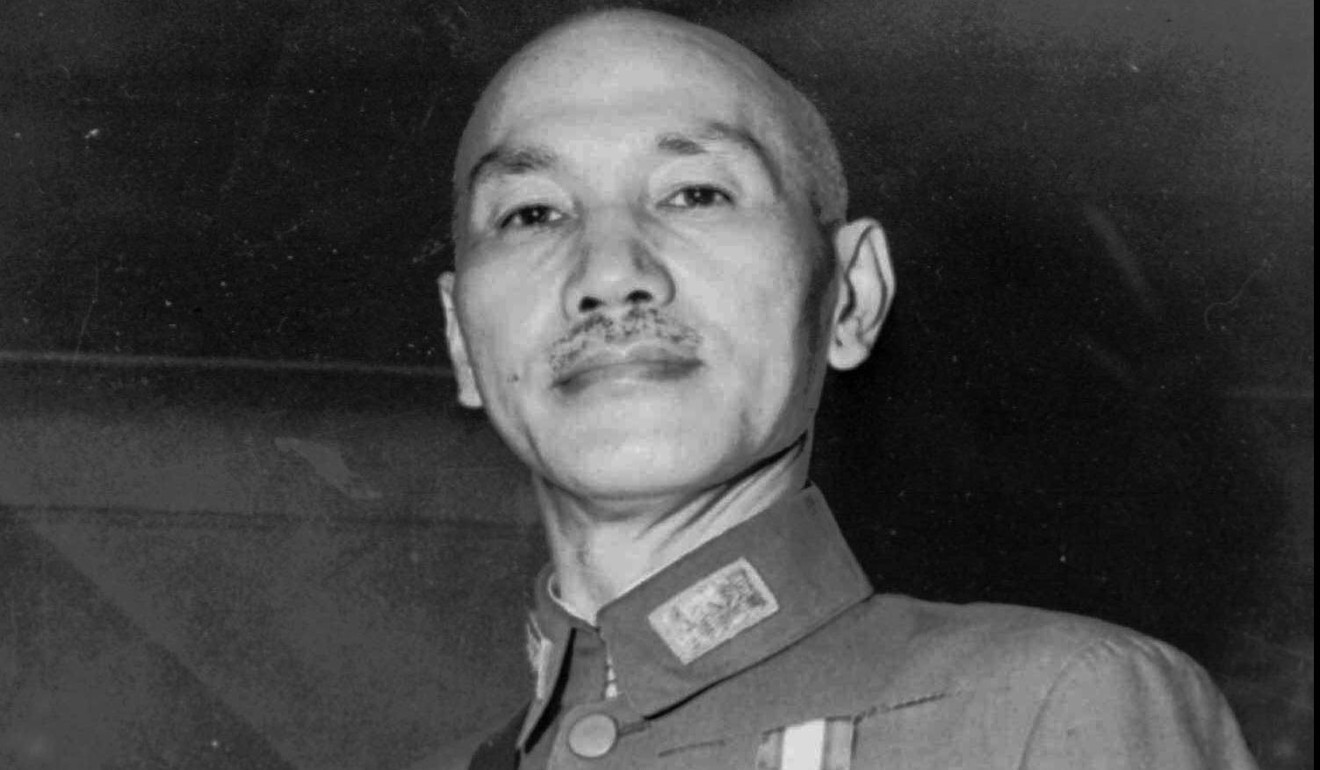
In a recent tweet to promote the celebrations, the island’s foreign ministry also avoided any reference to the Republic of China.
“Taiwan celebrates Oct. 10 National Day with great confidence, pride & hope for the future. Watch ‘2021 – Taiwan, Bringing People Together’ & see why those who love freedom & democracy #StandWithTaiwanFlag of Taiwan. There’s strength in unity & no country, not even Taiwan, is truly an island.”, the ministry tweeted.
Wang Yu-hsien, a 19-year-old university student in Taipei, said all the people around her identified as Taiwanese and she saw nothing wrong with this.
“The 110th birthday of the ROC? And the revolution in Wuchang 110 years ago? These were things that happened long before I was born and they don’t mean anything to me other than as part of history,” Wang said.
When Nationalist flags flew in Hong Kong for Double Tenth holiday
A coffee shop worker in her mid-20s called Anne said she remembered reading about the revolution in history books, but it meant nothing to her because she had been born and raised in Taiwan.
“To me and my friends, Double Tenth Day is just a public holiday and it is no big deal at all,” she said.
She had been more willing to celebrate the day as a student but because of work and the change of government from the KMT to the DPP in 2016, she no longer spends much time doing so.
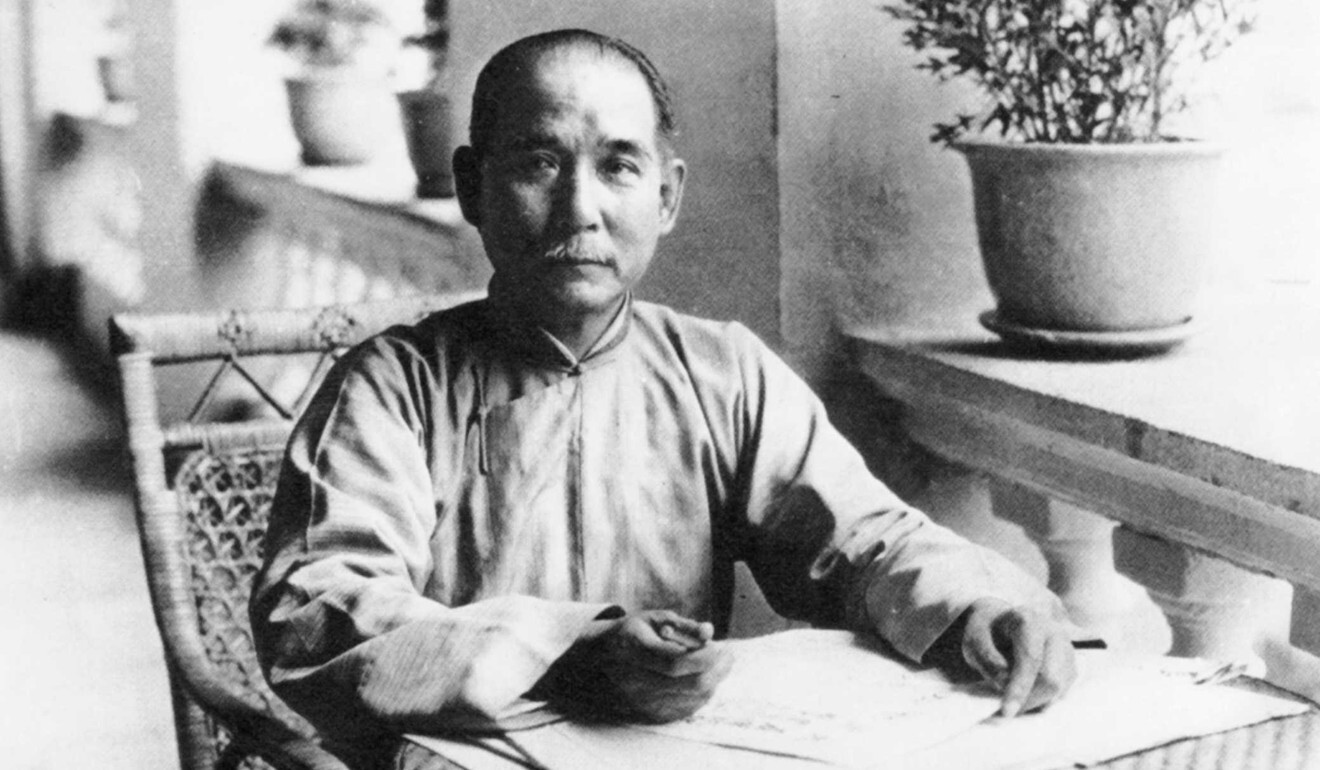
Lee Da-jung, a professor of international relations and strategic studies at Tamkang University in Taipei, said the independence-leaning DPP, which had its first spell in power between 2000 and 2008, had adopted a policy of distancing Taiwan from the mainland and was trying hard to cut the historic links between the two.
“This explains why they have emphasised Taiwan more than the ROC as that official title is only used by them as a cover to promote a Taiwanese identity and Taiwan-centric ideology,” Lee said, adding that on many occasions, Tsai Ing-wen, the DPP leader, described herself as “President of Taiwan.”
Tsai has repeatedly emphasised that the island has not been ruled by the current Chinese government for a single day and prefers to refer to Taiwan rather than the ROC in important statements, including the state of the union address, although she is careful to include the official title somewhere in her statements.
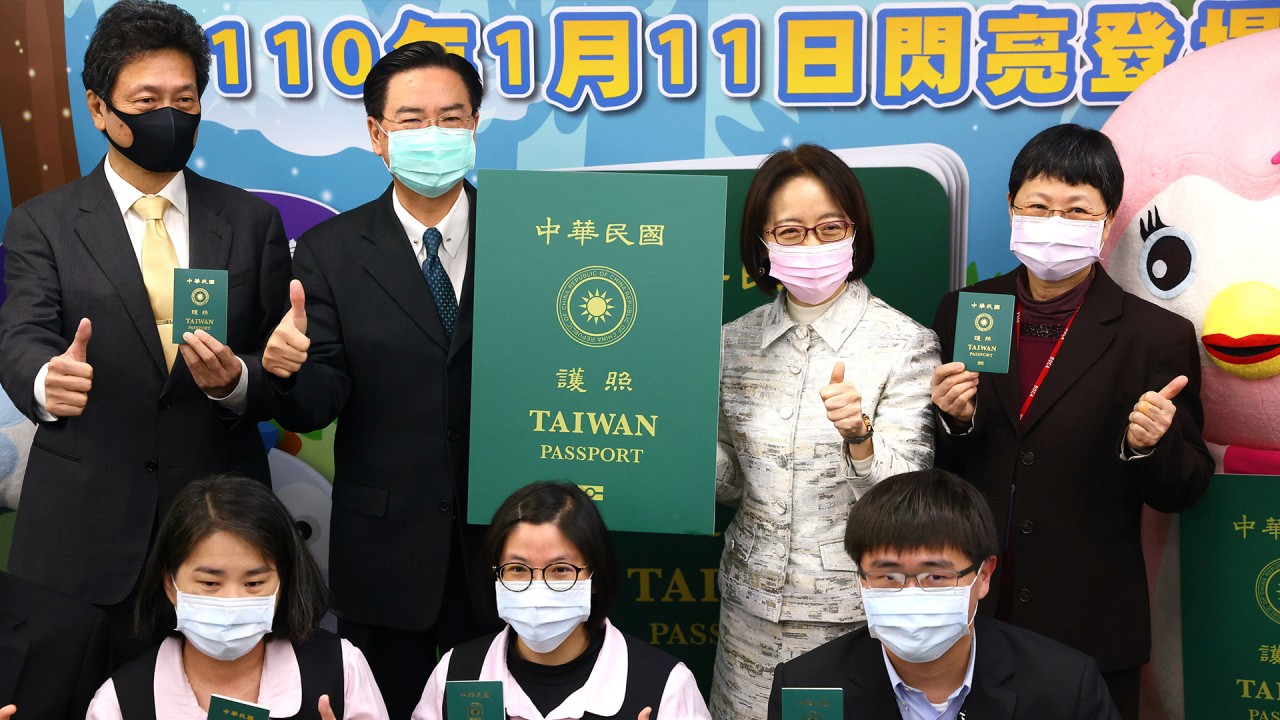
01:09
Taiwan rolls out new passport designed to end confusion with mainland China
Lee said that because of the government’s anti-mainland policy and souring cross-strait relations, many young people do not like Beijing, especially after it started sending warplanes to ramp up pressure on Taiwan.
Lee noted that changing high school history textbooks to focus on Taiwan rather than China is a major reason why young people, the under-20s in particular, identify far less with the ROC.
In a recent social networking post, popular Taiwanese author Wu Tan-ju lamented that because of these changes, many youngsters in Taiwan had no idea who Sun Yat-sen was.
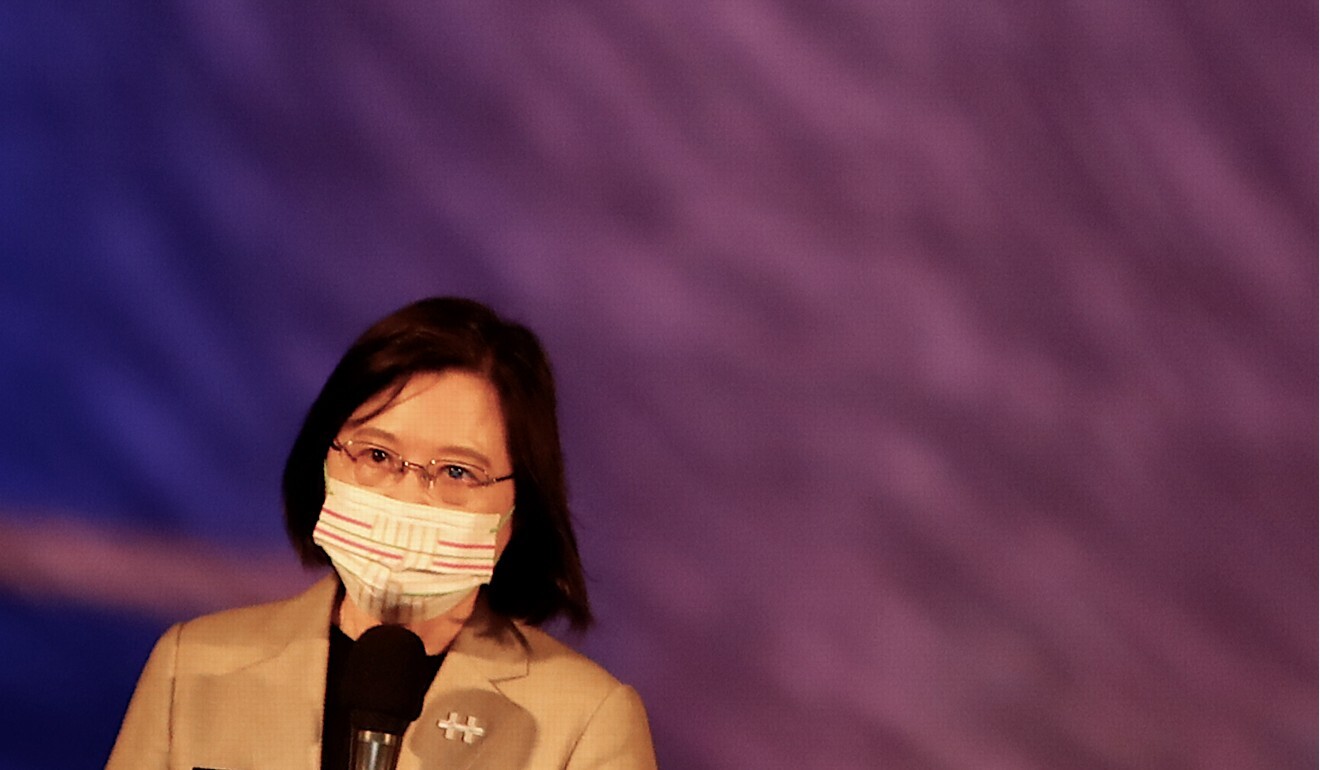
Lee said the KMT, which adopts a mainland-friendly policy, has the responsibility to promote the ROC.
Zhu Fenglian, a spokeswoman for the Taiwan Affairs Office in Beijing, has lashed out at the Tsai government for the English language description of the Double Tenth which she said promoted “one China and one Taiwan”. She said it was a political farce that would only impair the well-being of Taiwanese compatriots and harm cross-strait peace and stability.

